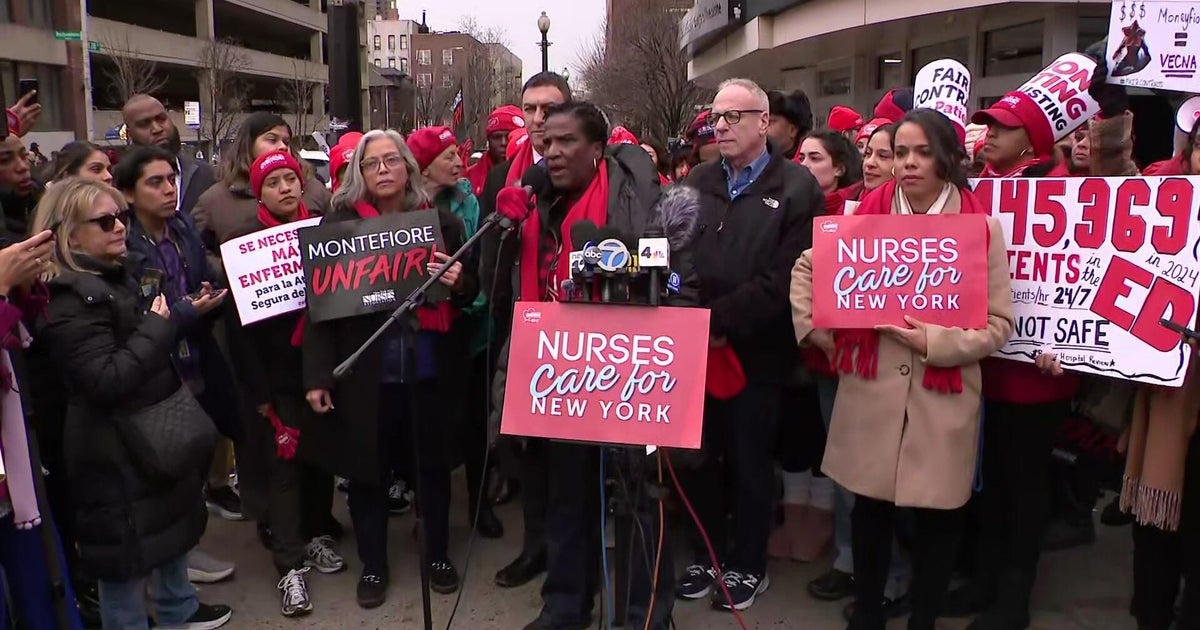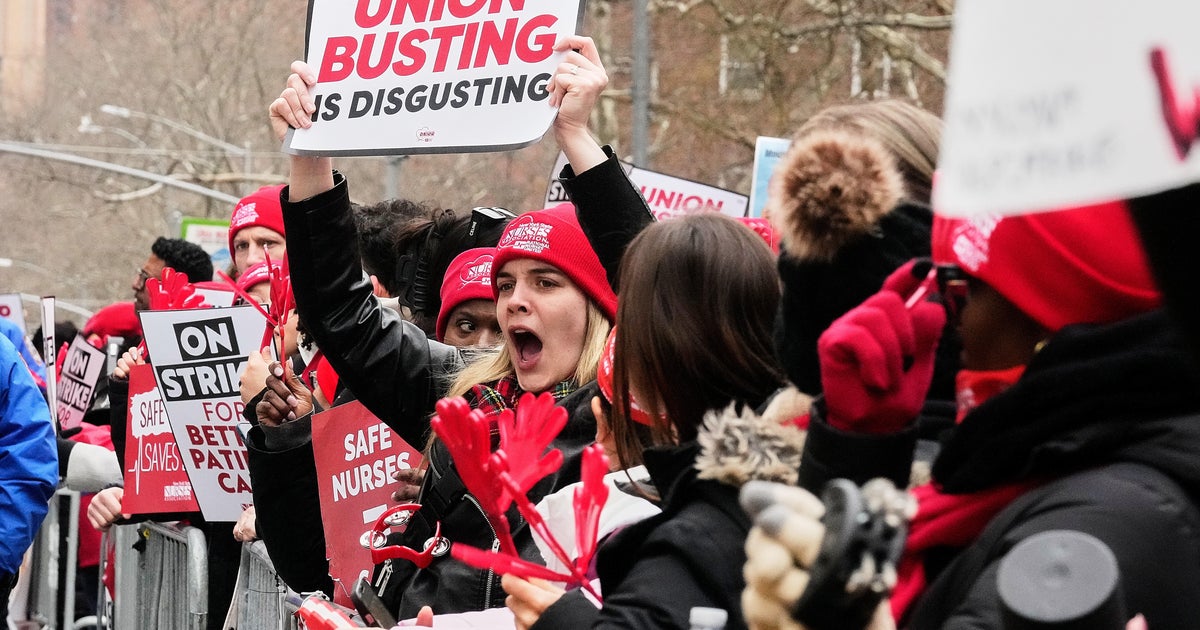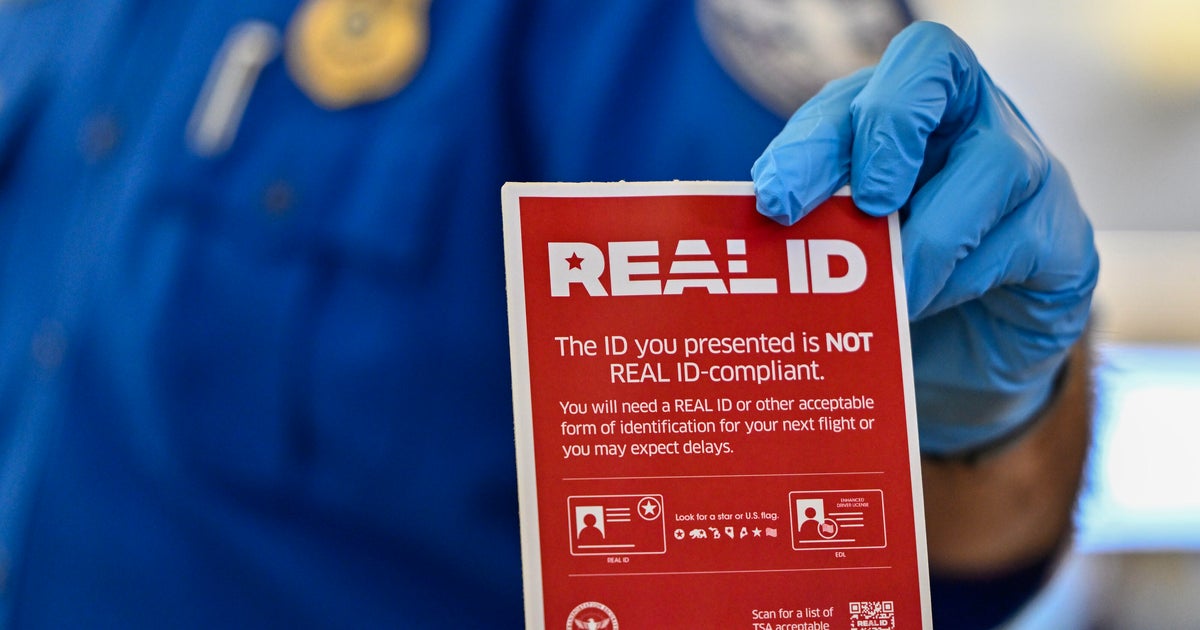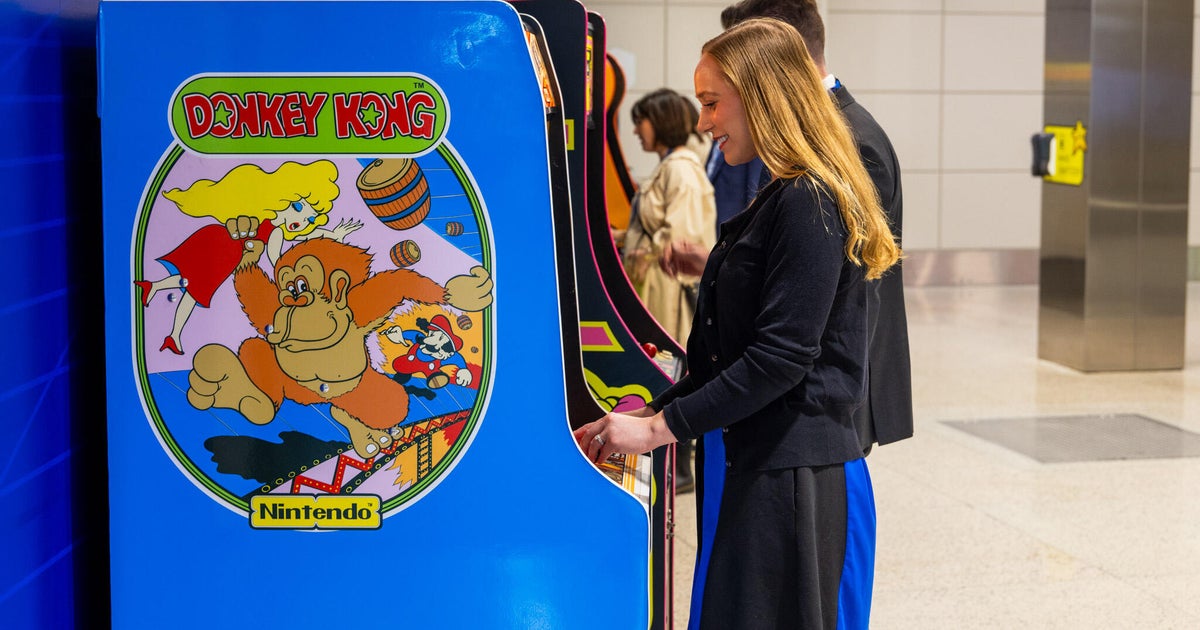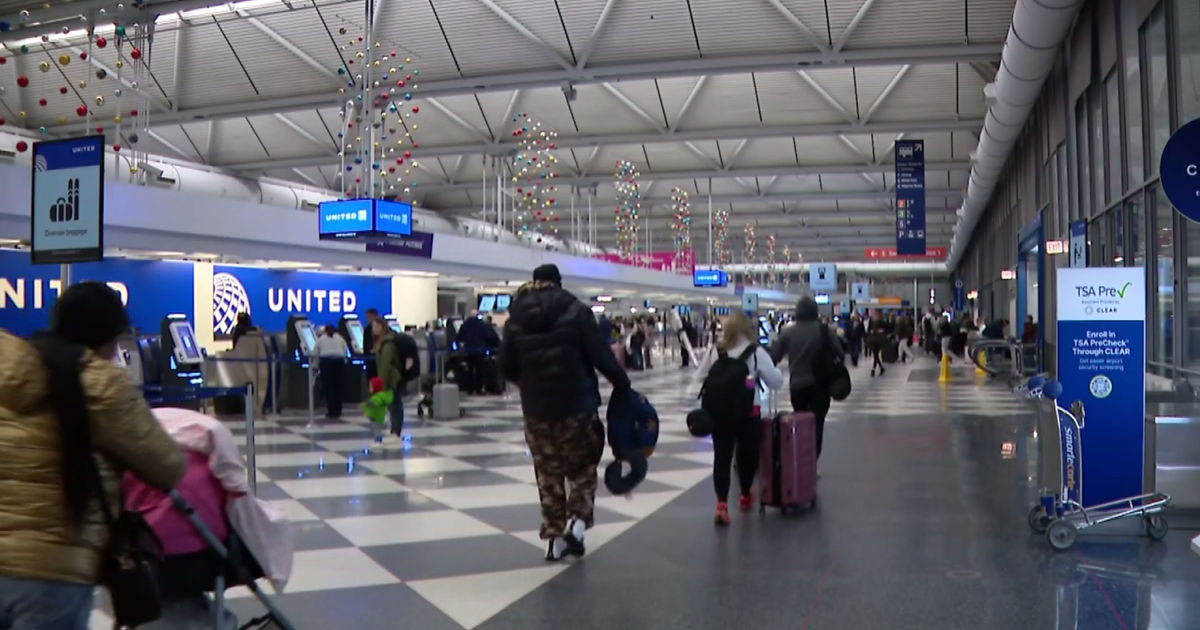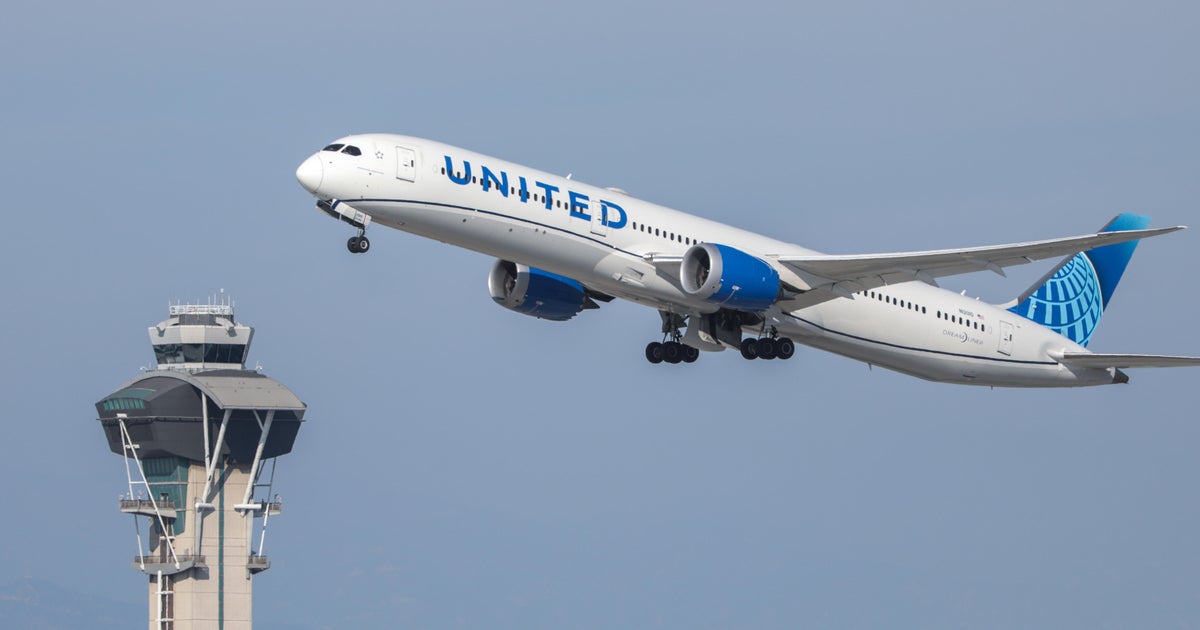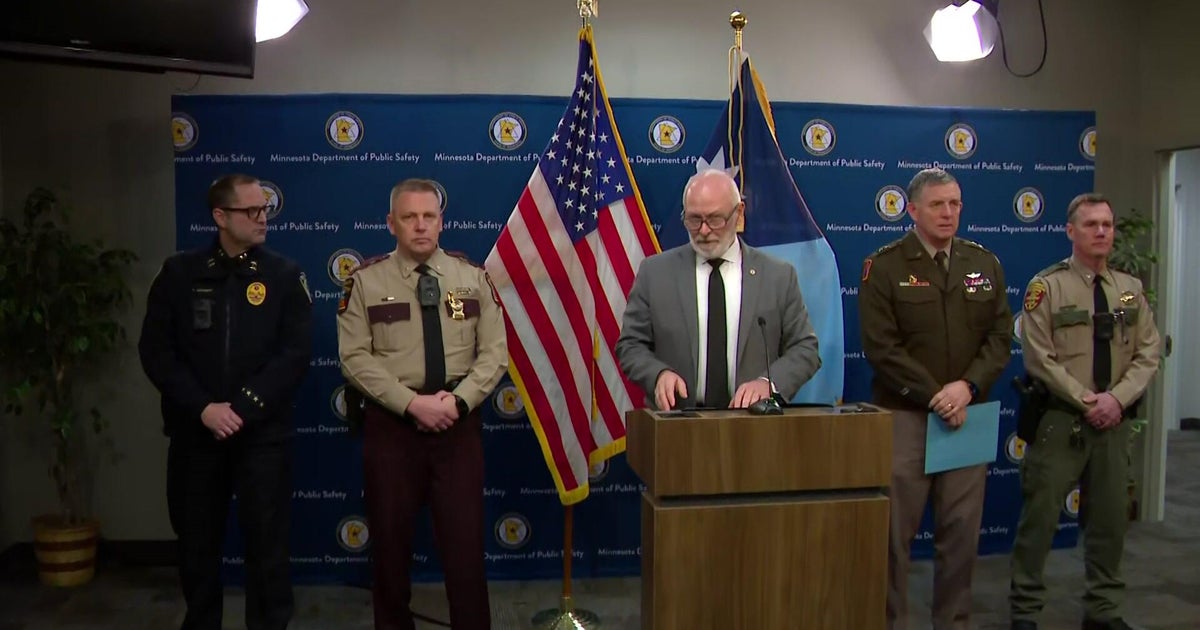Plane Cabin Cleaners At LaGuardia Airport Strike Over Health, Safety Issues; Cite Ebola Concerns
NEW YORK (CBSNewYork/AP) -- Airplane cabin cleaners have set up pickets outside a LaGuardia Airport terminal over health and safety issues.
About 200 Air Serv workers who support domestic flights at Terminal D began a 24-hour strike on Wednesday night.
Plane Cabin Cleaners At LaGuardia Airport Strike Over Health, Safety Issues; Cite Ebola Concerns
They say their concerns include possible exposure to Ebola.
"The whole country is shivering, worried about the problems of Ebola," said Hector Figueroa, President of 32BJ Service Employees International Union. "Airport workers are on the front line of protecting the public, to protect the public we have to protect the workers."
EXTRAS: CDC Fact Sheet On Ebola Screening At Airports | More On Ebola From The CDC
The workers, who are seeking to unionize, clean the insides of Delta planes that land at LaGuardia and said they lack proper equipment, like working gloves and protective uniforms, CBS 2's Don Champion reported.
Plane Cabin Cleaners At LaGuardia Airport Strike Over Health, Safety Issues; Cite Ebola Concerns
"We have to go out with the little bit that we make and buy our uniforms to protect ourselves, the gloves that are given break easily," Air Serv worker Wendy Arellano said.
The workers, who are mostly immigrants and make just above minimum wage, have been fighting to unionize for about two years. Their concerns have grown recently considering the Ebola outbreak in West Africa and the fact that they're sometimes exposed to blood, feces and vomit.
"We're in contact with feces. We're in contact with urine," Arellano said. "And those bathrooms have to be very clean."
"These workers are essentially treated like the garbage that they have to handle every day," Figueroa added. "They're given no equipment, no tools, no training that is appropriate for the kind of challenges that we need for our airport to be safe for passengers and workers alike."
The number of cabin cleaners per job has been reduced by up to half and the time to clean entire planes has been cut from 45 minutes to as little as 5 minutes, the workers said.
"The pressure that we're under to clean each plane is only 5 to 8 minutes, and 5 to 8 minutes with gloves that break instantly you're not protecting yourself from anything," Arellano said.
To help with the situation, leaders of 32BJ provided training for the striking workers on how to do their jobs safer, which is something the union said their employer should be doing, Champion reported.
"They should have the proper equipment, the proper masks, the proper gloves to do the job and not being exposed to potential life threatening situations and in some ways exposing the passengers by having conditions like that," union vice president Rob Hill said.
"These workers have the courage to stand up for all airport workers and the movement will grow," Figueroa said. "It always takes a few people willing to take a risk to be heard to make a movement."
There was no immediate response from Air Serv, which apparently brought in replacement workers.
The Port Authority of New York and New Jersey, which operates the airport, released the following statement:
"The workers are not our Port Authority employees, they are airline contract employees. However, the airlines and other companies that employ them are required to meet all applicable OSHA laws, as well as the terms of their leases with the Port Authority. Our permits also require all companies that do business at the airport to comply with all city, state and federal laws and regulations. Additionally, the CDC has provided airports and airlines guidance for cleaning personnel working on planes and airport facilities."
Meanwhile, as CBS 2's Sonia Rincon reported, city Health Commissioner Dr. Mary Travis Bassett called the airport workers' fears unfortunate.
But CBS 2's Dr. Max Gomez said the airline workers have a valid concern, however remote the chances of their getting infected may be.
"The airline workers may have somewhat of a point, because they may actually come in contact with the bodily fluids that are the main way the virus is transmitted. They're on the picket lines because they know people do get sick on airplanes. There's a reason they put air sickness bags in the seat-back pockets, not to mention what they may come across in the lavatories. Still, the chances of getting Ebola from this are extremely, extremely small," Gomez said.
The walkout comes as Homeland Security agents at five U.S. airports and other ports of entry are beginning to observe travelers coming into the United States for potential signs of Ebola infection and handing out fact sheets about the disease.
New temporary screening rules are set to go into effect Saturday at JFK International Airport and then expand to Newark Liberty Airport next week. Additional screenings will also be added at Washington Dulles, O'Hare in Chicago and Hartsfield-Jackson in Atlanta.
Customs and Border Protection agents at the five airports will check passports, take travelers from Guinea, Liberia, and Sierra Leone to a special screening area, observe them for signs of illness and ask them a series of questions about their health and possible exposure to Ebola.
You May Also Be Interested In These Stories:
(TM and © Copyright 2014 CBS Radio Inc. and its relevant subsidiaries. CBS RADIO and EYE Logo TM and Copyright 2014 CBS Broadcasting Inc. Used under license. All Rights Reserved. This material may not be published, broadcast, rewritten, or redistributed. The Associated Press contributed to this report.)
